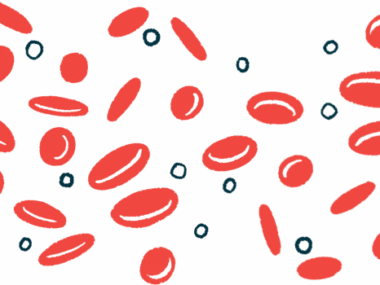Zydus’ desidustat seen to ease anemia in mouse model of AIHA
Desidustat could be treatment option for autoimmune diseases like CAD
Written by |

Zydus Lifesciences’ desidustat eases the anemia and red blood cell destruction that mark autoimmune hemolytic anemia, or AIHA, a group of autoimmune conditions that includes cold agglutinin disease (CAD), a study in a mouse model has found.
The oral therapy was shown to stimulate red blood cell production and increase levels of hemoglobin — the protein that transports oxygen through the body — while keeping AIHA-driving self-reactive antibodies from binding to red blood cells, thereby easing their destruction, according to the researchers.
Desidustat is approved in India under the brand name Oxemia for treating people with anemia, or a shortage of red blood cells, associated with chronic kidney disease.
These new findings suggest that desidustat “can be a good therapeutic option for treatment of AIHA,” the researchers wrote.
Titled “Prolyl hydroxylase inhibitor desidustat attenuates autoimmune hemolytic anemia in mice,” the study was published in the journal International Immunopharmacology by a team of researchers at India-based Zydus.
CAD, a form of AIHA, marked by anemia, red blood cell destruction
AIHA occurs when the body’s immune system produces self-reactive antibodies that bind to red blood cells, marking them for destruction — a process known as hemolysis. The disease can be classified as warm AIHA, CAD, and mixed AIHA, depending on whether these antibodies attach to red blood cells at warm or cold temperatures, or a combination of both.
Because the body can’t produce red blood cells quickly enough to replace the ones lost to destruction, these conditions cause anemia, or low red blood cell counts, and low levels of hemoglobin, which is the protein in red blood cells that helps transport oxygen throughout the body.
In response to low blood oxygen levels, the kidneys secrete the hormone erythropoietin, called EPO, to stimulate the production of new red blood cells in the bone marrow.
Desidustat, classified as a hypoxia-inducible factor prolyl hydroxylase inhibitor, stabilizes the oxygen-sensitive hypoxia inducible factor (HIF) by specifically blocking an enzyme called prolyl-hydroxylase. HIF stabilization boosts the production of EPO and red blood cells in response to falling oxygen levels.
To explore the potential use of desidustat for treating AIHA, the researchers turned to a preclinical model in which mice receive repeated injections of red blood cells from rats, which their immune system recognizes as foreign.
This results in the production of antibodies against rat red blood cells that also wrongly attach to the mice’s own red blood cells, causing general destruction of red blood cells.
These mice then received either desidustat or a placebo daily for eight weeks, along with repeated injections of rat red blood cells.
The results showed that, as expected, the mice experienced a reduction in red blood cells and hemoglobin, and their red blood cells lived for a significantly shorter time.
Compared with the placebo, treatment with desidustat significantly increased the number of red blood cells by 12.4% and hemoglobin levels by 19.7%, while extending the lifespan of red blood cells by 19.5%.
Levels of red blood cell destruction marker dropped by about half in mice
In the bone marrow, desidustat treatment significantly increased the number of early and late red blood cell progenitors, as well as the iron pool needed to support red blood cell production. This was likely the result of drawing iron from the blood and other tissues, where its levels were found to be reduced, according to the researchers.
Further, treatment with desidustat significantly reduced the circulating levels of antibodies and more than halved the amount of antibodies bound to red blood cells. It also dropped, by about half, the blood levels of a marker of hemolysis called lactate dehydrogenase, or LDH.
[Desidustat] could be of therapeutic use [for AIHA, including CAD].
The mice showed an increase in the number of circulating immune cells in response to the repeated injections of rat red blood cells. Unlike with the placebo, treatment with desidustat significantly reduced the number of lymphocytes, a class of immune cells that includes B-cells, which are responsible for producing antibodies, including self-reactive antibodies.
This suggests that the therapy may help reduce levels of self-reactive antibodies by lowering the number of B-cells.
In addition, mice treated with desidustat had significantly lower levels of oxidative stress — a type of cellular damage that occurs when there aren’t enough antioxidants to counteract toxic oxygen-containing molecules — compared with animals given the placebo.
While it’s not known whether these findings hold true in patients, the researchers noted that, because desidustat appears to target many mechanisms involved in AIHA, it “could be of therapeutic use” for AIHA, including CAD.







